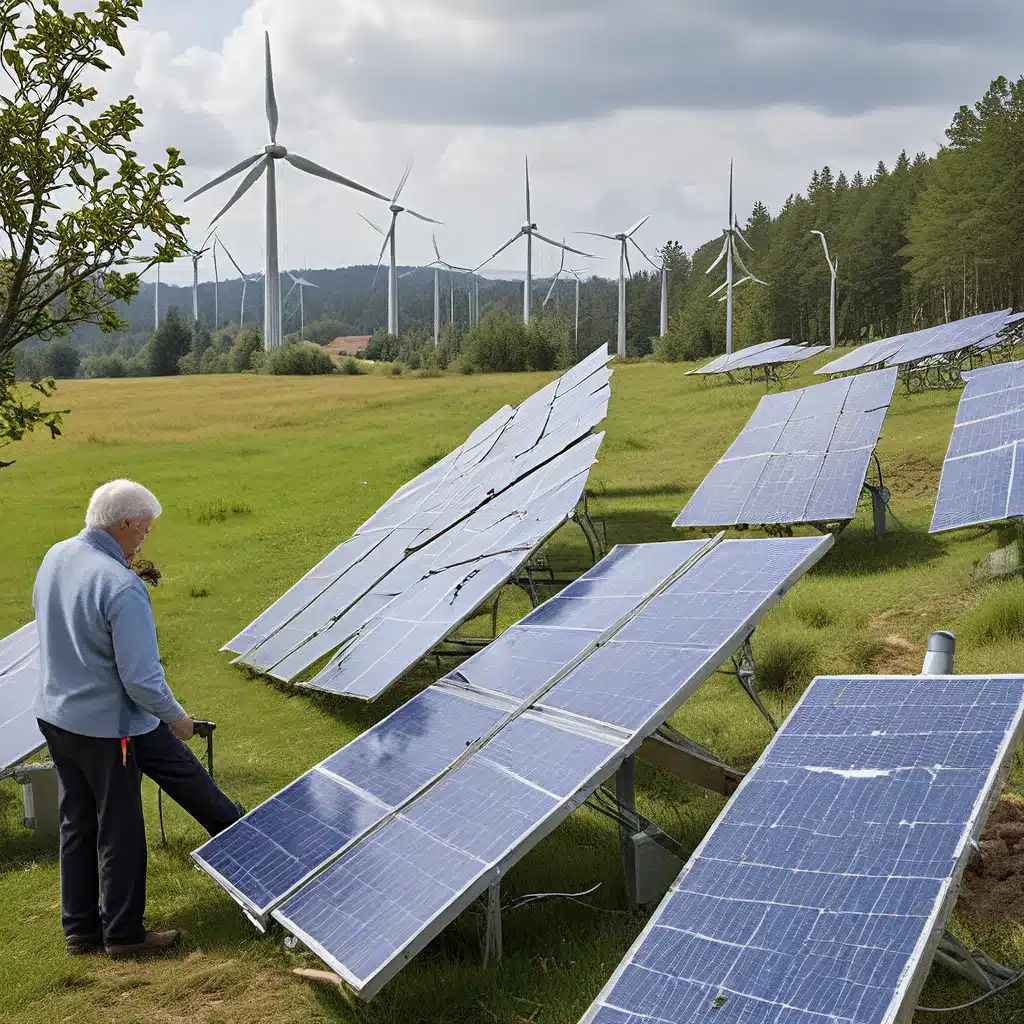
As someone who’s always been fascinated by the intersection of technology, the environment, and education, I’m thrilled to dive into this topic of renewable energy and the sustainable education system. It’s a captivating realm where the quest for clean, renewable power collides with the vital mission of equipping the next generation of leaders, innovators, and problem-solvers.
Embracing the Solar Revolution
Let me start by acknowledging the sheer scale of the renewable energy challenge we face. According to the U.S. Department of Energy, the country has a lot of work to do in developing the technologies necessary to achieve its goal of being 100% carbon-pollution-free by 2035. But this is no small feat – it’s a monumental undertaking that requires a new breed of engineers and energy experts who can think holistically and drive meaningful progress.
Enter the Master of Science in Clean Energy Systems program launching this fall at Arizona State University’s Ira A. Fulton Schools of Engineering. As Arunachala Mada Kannan, the program chair, emphasizes, “We need to do a lot of things before that comes to fruition, but the key aspect is the energy source. If you tackle that, everything will fall into place.”
And boy, are they tackling it. This interdisciplinary graduate program is a game-changer, equipping students with the knowledge and skills to navigate the complex web of solar photovoltaics, batteries, fuel cells, and smart zero-emission vehicles. Harnessing the expertise of faculty at the forefront of cutting-edge research, students will gain hands-on experience in ASU’s state-of-the-art labs, putting their education to work in real-world applications.
One particularly exciting focus area is the study of autonomous zero-emission vehicles. As Kurt Paterson, director of The Polytechnic School, points out, “Phoenix is at the forefront of autonomous vehicle testing and has been since 2015.” This provides a wealth of opportunities for graduate students to apply their clean energy systems knowledge and secure internships that could lead to fantastic job prospects.
Cultivating a Sustainable Future
But the impact of this program extends far beyond the realm of transportation. As Kannan explains, “This new degree follows the model of other programs in The Polytechnic School that provide engaged learning, systems perspectives, industry engagement, and research that drives business and society.” In other words, these students aren’t just learning for the sake of learning – they’re being groomed as the next generation of innovative leaders who will shape the future of sustainable energy.
And let’s not forget the broader societal implications. As governments and businesses around the world rapidly invest in clean energy, this degree program will prepare graduates to influence this historic transformation, all while helping create a more stable environment, equitable access to energy, and thriving economies. Can you imagine a more rewarding career path?
Bridging the Renewable-Sustainable Divide
Of course, the journey to a sustainable energy future is not without its complexities. As the team at the Johns Hopkins School of Advanced International Studies (SAIS) points out, there’s a crucial distinction between renewable energy and sustainable energy that’s often overlooked, even among industry experts.
Renewable energy, derived from resources that naturally sustain or replenish themselves over time, is a promising solution that’s increasingly cost-effective and environmentally friendly. But as the SAIS team notes, “sustainable energy is derived from resources that can maintain current operations without jeopardizing the energy needs or climate of future generations.” This nuance is crucial, as not all renewable sources, like biofuels, are truly sustainable.
Navigating this landscape requires a deep understanding of the social, political, and economic factors at play. That’s why a master’s degree in sustainable energy, like the one offered at SAIS, is so valuable. It equips students with the critical thinking skills and cross-disciplinary awareness needed to tackle the energy crisis head-on, ensuring that their policies, initiatives, and decisions truly align with the ideals of sustainability.
Powering the Clean Energy Transition
As I reflect on all of this, I can’t help but feel a sense of optimism and excitement for the future. The 82% of people worldwide who agree that the world should be fully powered by renewable energy are onto something. And with programs like the one at ASU and the SAIS master’s degree, we’re well on our way to making that vision a reality.
Of course, the road ahead is not without its challenges. Disparities in regulations, infrastructure, and public support can create hurdles that require creative problem-solving and nuanced policy-making. But I’m confident that the next generation of energy leaders, armed with the knowledge and skills gained through these innovative educational programs, will be up to the task.
So, whether you’re a seasoned industry professional looking to level up your expertise or a bright-eyed student eager to shape the future of renewable energy, I’d highly recommend exploring these opportunities. After all, as Paterson so eloquently puts it, “Can you imagine a better way to make a career?”
As for me, I’m going to keep following this renewable energy journey with a keen eye and an open mind. The possibilities are endless, and I can’t wait to see what the future holds.

